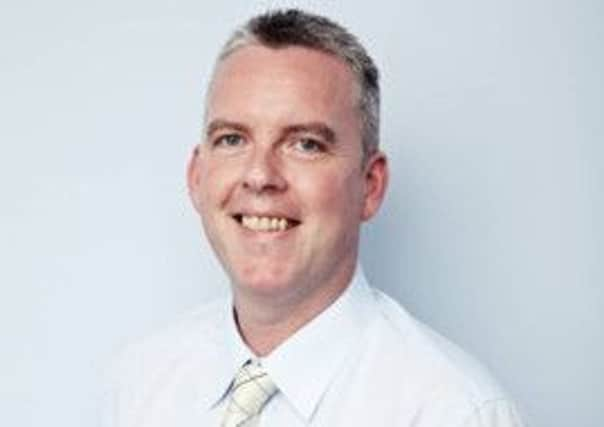How to keep your financial plans on track


The big banks have turned their backs on branch-based advice since the retail distribution review (RDR) came into effect on Hogmanay, while many financial advisers have left the industry or ditched clients considered insufficiently affluent. Clydesdale Bank, Lloyds, Royal Bank of Scotland, Santander, HSBC and Barclays have all walked away from providing investment advice over the past year, largely due to the RDR.
The legislation abolished the payment of commission on investment and pension products, meaning that advisers are now remunerated by way of investor-agreed fees; many banks would struggle to provide the level of service that investors would be willing to pay for.
Advertisement
Hide AdAdvertisement
Hide AdBetter quality advice that is not be paid for or influenced by commission generated from the sale of a product is good news for consumers, but the exodus of high street banks from the advice market has left thousands of investors without an adviser. If you are one of these so-called “orphaned investors”, it is essential you don’t feel stranded. Here are steps you can take to ensure your financial plan remains on track:
Find a new financial guardian
Securing the services of a highly qualified, independent financial adviser is likely to pay dividends. Taking advice that is not independent – or worse still, buying a financial product online with no advice at all – could mean you miss opportunities or make mistakes and may well cost you more in the long run. By paying for independent, whole-of-market advice you will gain access to the lowest-cost products and funds, which will ultimately save you money and improve your investment returns.
Ask any potential new adviser whether they are independent or restricted and to what level they are qualified. Many independent, fee-based advisers have held the new minimum level of qualifications imposed by the RDR, the diploma in financial planning, for years prior to its introduction and have more advanced qualifications too, such as chartered or certified status.
Be sure to ask what kind of level of service you can expect for ongoing fees (generally paid as a percentage of your investments). Will you be able to build a structured ongoing relationship with your new adviser that includes regular reviews of your position?
Examine charges and products
Many people will have a basket of products that they have amassed from various providers and financial salesmen over the years. Do you have a clear idea of what financial products you hold, why and whether these are fit for purpose?
The cost of many investment products has reduced drastically over the years, so it’s crucial that you review how much your investment and pension plans are costing you. Older-style pensions, for example, are laden with unnecessary charges that act as a huge drag on performance.
Switching to more modern plans is one way to bring down costs considerably, while consolidating your investments into one pot can give you access to more favourable institutional rates.
Looking at the cost of your pensions and investments is important, as is how your money is actually invested. Assessing the level of investment risk you are prepared to accept and ensuring you are investing in line with this is the first step: you might well have your money in completely the wrong type of funds which do not match your investment risk profile.
Advertisement
Hide AdAdvertisement
Hide AdYou might also be taking on more risk than you need to. If you only need to achieve 5 per cent annual return to reach your goals, then you don’t need to be invested in higher-risk areas, such as emerging market equities.
Do you know how you are investing? The vast majority of the funds bought by investors in the past 20 or 30 years are actively managed. These aim to beat the market, but generally fail to do so, and in the post-RDR world a growing number of financial advisers are recommending passive funds, such as trackers.
These are not only invariably cheaper, as there are no expensive fund managers or research departments to pay for, but also tend to deliver a more predictable investment performance.
Keep your eye on the ball
Taking a holistic approach to your financial planning makes managing your portfolio easier. A key discipline in investing is “rebalancing”. By periodically taking profits from investments that have done well and topping up other assets that have not done as well, you will not only ensure you’re not taking too much (or too little) investment risk, you will also tend to be selling high and buying low. This process is one of the few free lunches in investing.
Another is tax breaks. Successive governments have tinkered with financial legislation and changed tax allowances, so make sure you keep up to speed with these changes (or leave it up to your adviser) to make sure you’re not missing any tax-saving opportunities.
Cashflow modelling is another way in which you can make sure you’re always one step ahead of the game – and, crucially, ensure that you never run out of money. Most people have little or no idea how far their existing assets will go towards their financial objectives, but cashflow modelling allows advisers to realistically test these objectives against a client’s current circumstances, attitude to risk, savings and future saving potential.
A string of data, such as regular streams of income and expenditure, one-off expenses and other realistic future assumptions relating to your personal circumstances as well as tax and inflation, can be inputted to paint as accurate a picture as possible of what your earnings and savings might be likely to achieve.These assumptions can be modified as circumstances change to ensure you have an accurate view of your position and highlighted any changes that could be made to your financial plan to increase your chances of achieving your objectives.
• Keith Mackie is a certified financial planner at Acumen Financial Planning.